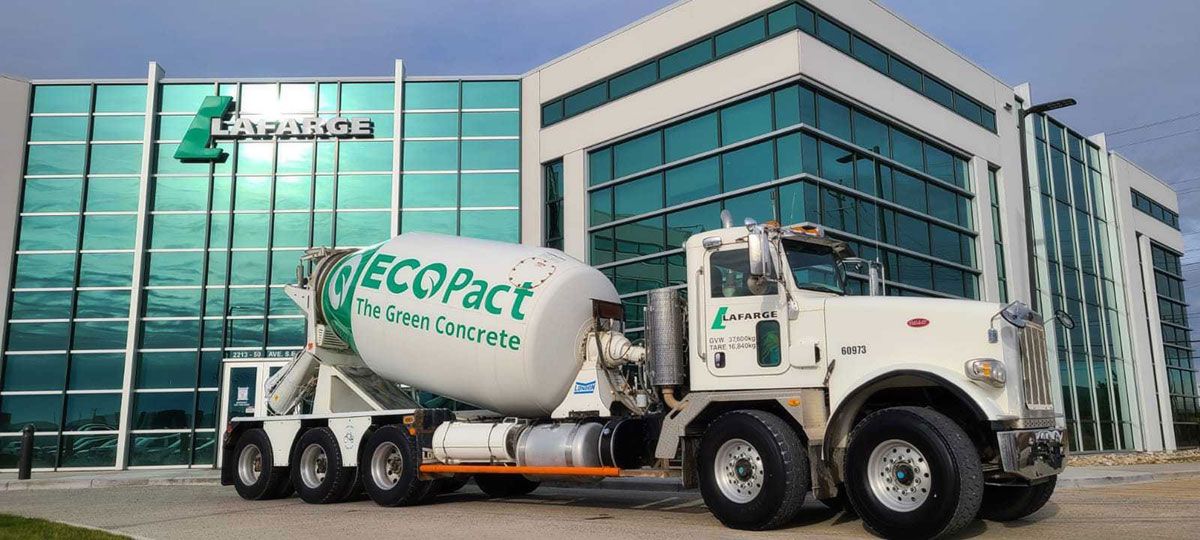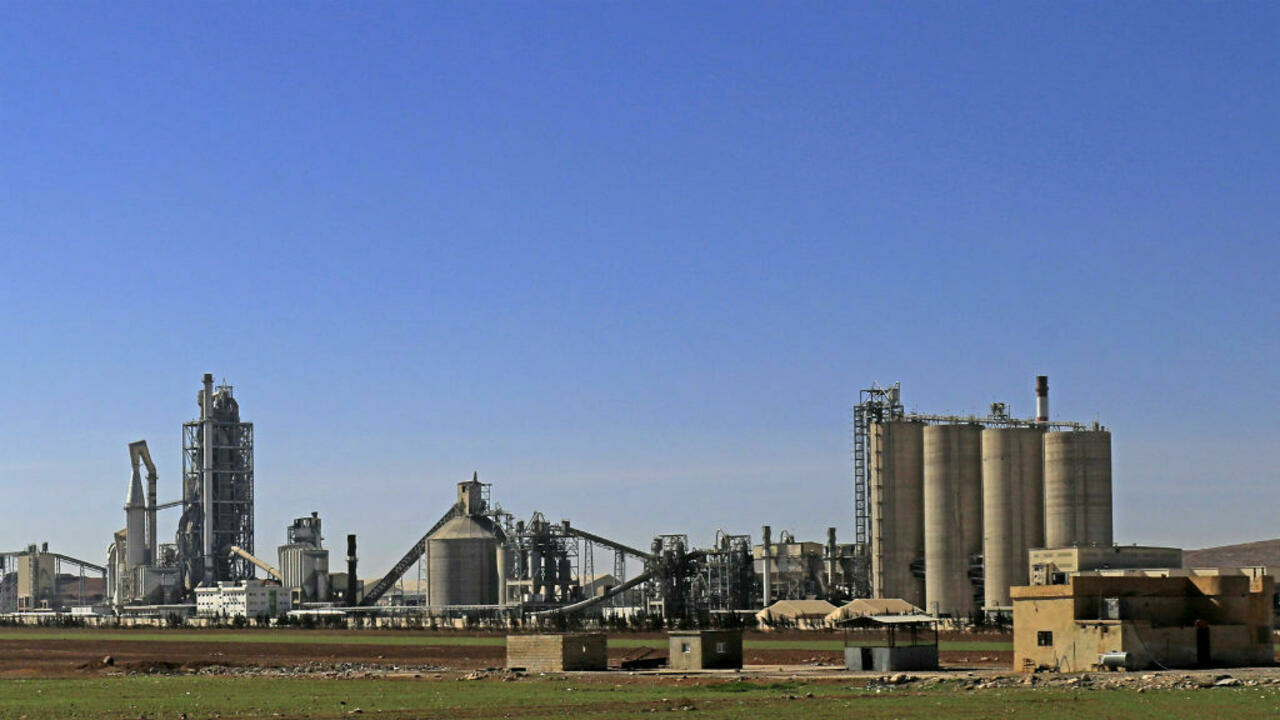MORE COVERAGE
Twitter Coverage
Satyaagrah
Written on
Satyaagrah
Written on
Satyaagrah
Written on
Satyaagrah
Written on
Satyaagrah
Written on
JOIN SATYAAGRAH SOCIAL MEDIA
Terrorism Financing Charge Upheld Against French Company Lafarge: Lafarge paid ISIS terrorists millions to keep Syria factory running, can be charged with ‘crimes against humanity

French cement behemoth Lafarge could be charged with ‘crimes against humanity’ in Syria’s civil war after the highest court in France on Tuesday overturned a decision by a lower court to dismiss the charges.
Lafarge, now part of Swiss group Holcim, is under formal investigation in France after it acknowledged that its Syrian subsidiary paid middlemen to negotiate with terror groups in their efforts to keep their factory running in the country after conflict erupted in 2011.
While in its internal investigation, the company admitted that its Syrian subsidiary financed armed groups to help protect staff at the plant in Syria, it has rejected a host of charges against it, including that it was complicit in committing ‘crimes against humanity’ by financing the terrorist groups.
 |
In 2019, the Paris Court of Appeal had dismissed the ‘crimes against humanity’ charge, asserting that the financial dealings by the company were not aimed at funding Islamic State’s grisly agenda of torturing and killing innocent people.
However, it did rule that the company be charged on three counts—financing terrorism, violating an EU embargo and endangering the lives of others. The verdict was challenged by 11 former employees of Lafarge Cement Syria(LCS) at the court of Cassation, with the help of NGOs.
On Tuesday, the court of Cassation overturned the lower court’s judgement on complicity, stating that “one can be complicit in crimes against humanity even if one doesn’t have the intention of being associated with the crimes committed.”
|
“Knowingly paying several million dollars to an organisation whose sole purpose was exclusively criminal suffices to constitute complicity, regardless of whether the party concerned was acting to pursue a commercial activity,” the court observed.
The court also noted that “numerous acts of complicity” would go unpunished if they adopted a more lenient approach in interpreting crimes.
Lafarge is accused of paying over 13 million euros ($15.3 million) to ISIS to keep its Jalabiya plant running after other French companies had left the country. But the ruling does not mean that Lafarge would automatically face trial on the charge of “crimes against humanity”, one of the most serious crimes laid against a French company in a foreign country in recent years.
The payments by the Lafarge Cement Syria (LCS) subsidiary were considered a “tax” in exchange for which militants allowed free movement of the company’s staff and goods inside the war zone, according to investigators.
It is claimed that some of the cash was also used to buy petrol and other raw materials from suppliers close to Isis.
A source close to the inquiry said investigators also suspected that Lafarge sold cement to Isis. Lafarge, which merged with Holcim in 2015, said it would take legal action to get the charges dropped, insisting that the company as a whole was not responsible. “We deeply regret what happened in our Syrian subsidiary and as soon as we were informed, we immediately took firm measures,” said Beat Hess, board president of LafargeHolcim. “None of the people charged is part of the company today.”
|
The company acknowledged in a statement that its “supervision of its Syrian subsidiary did not allow it to identify failures arising from an unprecedented breach of internal rules and regulations by people who have left the group”.
The criminal charges “do not fairly reflect Lafarge’s responsibilities” for what happened, it added.
The Sherpa rights group hailed the decision to charge the company, saying it was “a decisive step in the fight against the impunity of multinationals operating in armed conflict zones”.
It had launched the legal case against Lafarge alongside the European Center for Constitutional and Human Rights (ECCHR) and 11 former employees.
“The activities of Lafarge in Syria, in a context where extremely violent crimes had been committed – even right outside the factory – are a perfect illustration of how multinationals can feed conflicts,” said the ECCHR legal director, Miriam Saage-Maass.
“That the courts are finally recognising the scope and seriousness of these allegations is absolutely historic.” Several companies have previously faced allegations of complicity in crimes against humanity, though usually the cases have been dropped.
 |
The court sent the matter back to investigating magistrates to review the complicity charge.
The top court also quashed the lower court’s decision of maintaining the charge of endangering others, asserting that it was unclear whether the French Labour Law could be applied in the current case.
|
However, the court did uphold the charge of bankrolling terrorism, which Lafarge had tried to have dismissed.
Along with the company, eight Lafarge executives, including former CEO Bruno Laffont, are also charged with financing a terrorist group and/or endangering the lives of others, as per reports.
Lafarge left Syria in September 2014 after the terrorists of the Islamic State captured its plant in Jalabiya, about 15 kilometres northeast of the regional capital Aleppo.
However, Lafarge is not the only company that has been accused of complicity in crimes against humanity for its efforts to continue its operations in a foreign country.
Earlier, twelve Nigerians took the Anglo-Dutch energy giant Shell to court in the US over allegations of torture and other human rights abuses in the Niger delta in the 1990s, but the supreme court blocked the case in 2013.
In 2007, France’s top administrative court said it did not have the legal authority to rule on whether state rail operator SNCF could be held responsible for the deportation of Jews during the second world war.
 Support Us
Support Us
Satyagraha was born from the heart of our land, with an undying aim to unveil the true essence of Bharat. It seeks to illuminate the hidden tales of our valiant freedom fighters and the rich chronicles that haven't yet sung their complete melody in the mainstream.
While platforms like NDTV and 'The Wire' effortlessly garner funds under the banner of safeguarding democracy, we at Satyagraha walk a different path. Our strength and resonance come from you. In this journey to weave a stronger Bharat, every little contribution amplifies our voice. Let's come together, contribute as you can, and champion the true spirit of our nation.
 |  |  |
| ICICI Bank of Satyaagrah | Razorpay Bank of Satyaagrah | PayPal Bank of Satyaagrah - For International Payments |
If all above doesn't work, then try the LINK below:
Please share the article on other platforms
DISCLAIMER: The author is solely responsible for the views expressed in this article. The author carries the responsibility for citing and/or licensing of images utilized within the text. The website also frequently uses non-commercial images for representational purposes only in line with the article. We are not responsible for the authenticity of such images. If some images have a copyright issue, we request the person/entity to contact us at This email address is being protected from spambots. You need JavaScript enabled to view it. and we will take the necessary actions to resolve the issue.

























